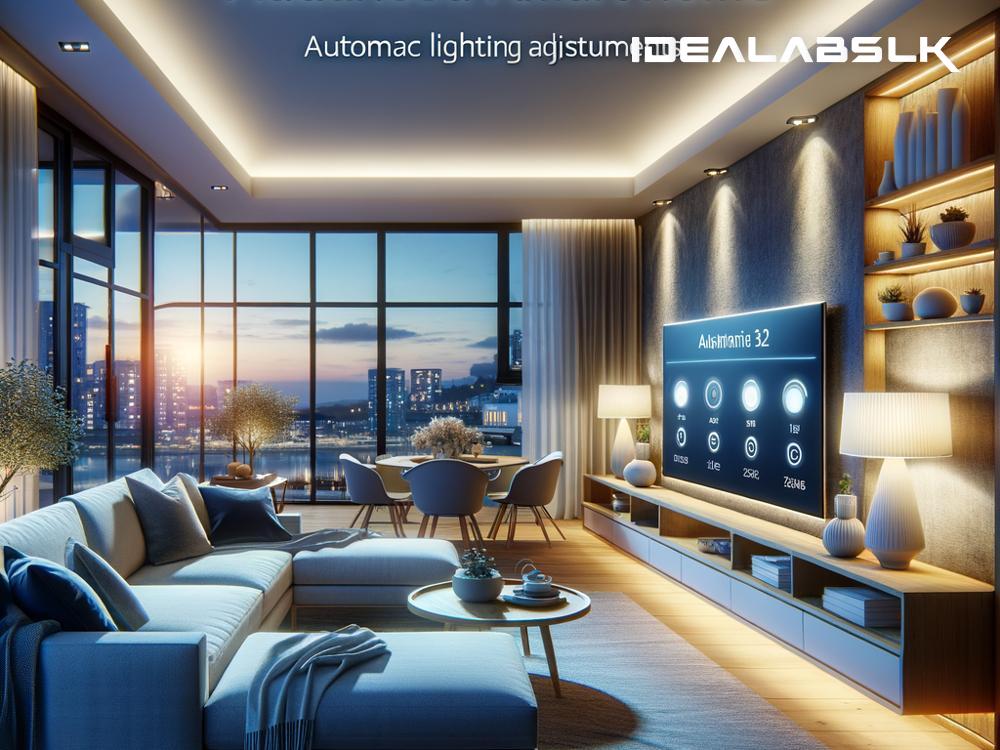Unlocking the Bright Potential: How AI Automates Lighting Adjustments in Smart Homes
In the era of smart technology, our homes have become more than just living spaces. They represent a digital ecosystem that's constantly evolving, integrating intelligent solutions to make our lives easier, safer, and more comfortable. A shining example of this innovation is the automation of lighting adjustments in smart home systems, powered by Artificial Intelligence (AI). Let's delve into how this remarkable technology is transforming the way we illuminate our homes, making it more efficient, personalized, and truly futuristic.
The Dawn of Smart Lighting
Remember the times when adjusting a room’s brightness meant walking over to a switch on the wall? Fast forward to today, and lighting systems can automatically respond to our needs and preferences, without us lifting a finger. This is the magic of smart lighting – a system that can control the intensity, and even the color, of the light in your home, all thanks to AI.
The Role of AI in Lighting Automation
At its core, AI is a branch of computer science focused on creating systems capable of performing tasks that usually require human intelligence. But how does this relate to lighting? Well, AI learns from your habits and preferences over time, applying this knowledge to manage your home's lighting automatically. It's like having a personal lighting assistant that knows exactly when you want the lights dimmed for a movie night or brightened when you're reading.
Understanding Your Routine
One of the first steps in this smart lighting journey is for the AI to understand your daily routine. It learns when you usually wake up, when you leave the house, and when you come back. This information allows the system to turn lights off when you're not home, saving energy, or gradually brighten the rooms in the morning to help you wake up more naturally.
Sensing the Environment
AI in smart lighting systems also utilizes sensors to perceive the environment. For instance, on a cloudy day, the system might automatically brighten the lights to maintain a consistent lighting level in your home. Or, as the sun sets, it can slowly increase the indoor lighting, ensuring a seamless transition between natural and artificial light.
Adjusting to Your Mood
Perhaps one of the most fascinating aspects of AI-driven smart lighting is its ability to adjust the lighting based on your mood or activity. Certain AI systems can sync with your calendar or monitor the usage of other smart devices to predict your needs. For example, if you've scheduled a relaxing bath, the system could automatically create a calming ambiance with warmer light tones.
Voice Control and Beyond
Voice-controlled assistants have become increasingly popular in managing smart home systems, including lighting. You can easily integrate AI lighting solutions with these assistants, enabling you to control the lights through simple voice commands. Imagine adjusting the brightness or changing the color of your lights without moving a muscle. This is especially helpful when your hands are full or when you're just too comfortable to get up.
Energy Efficiency and Sustainability
One of the most significant benefits of AI in smart lighting is its potential for energy savings. By optimizing lighting based on actual usage and natural light availability, AI systems significantly reduce wastage. This not only lowers your electricity bill but also contributes to a more sustainable planet.
The Future is Bright
The integration of AI in smart home systems, particularly in lighting, is just scratching the surface of what's possible. As technology advances, we can anticipate even more sophisticated features, like lighting systems that adjust based on health data to improve sleep or boost mood, or even more interactive environments that respond to our physical presence in a more nuanced way.
Lighting the Path Forward
The automation of lighting adjustments in smart homes through AI represents a leap towards more intuitive, efficient, and personalized living environments. It showcases the potential of smart technology to adapt to our lifestyles, making our homes not just places of comfort, but partners in our daily lives. As we continue to embrace these advancements, one thing is clear: the future of home lighting shines bright with AI at the helm.
In conclusion, the AI-driven transformation of home lighting systems is not just about convenience; it's about enhancing the quality of our lives. As we move forward, embracing these changes allows us to live more sustainably, enjoy personalized comfort, and perhaps most importantly, invest more time in what truly matters to us.

